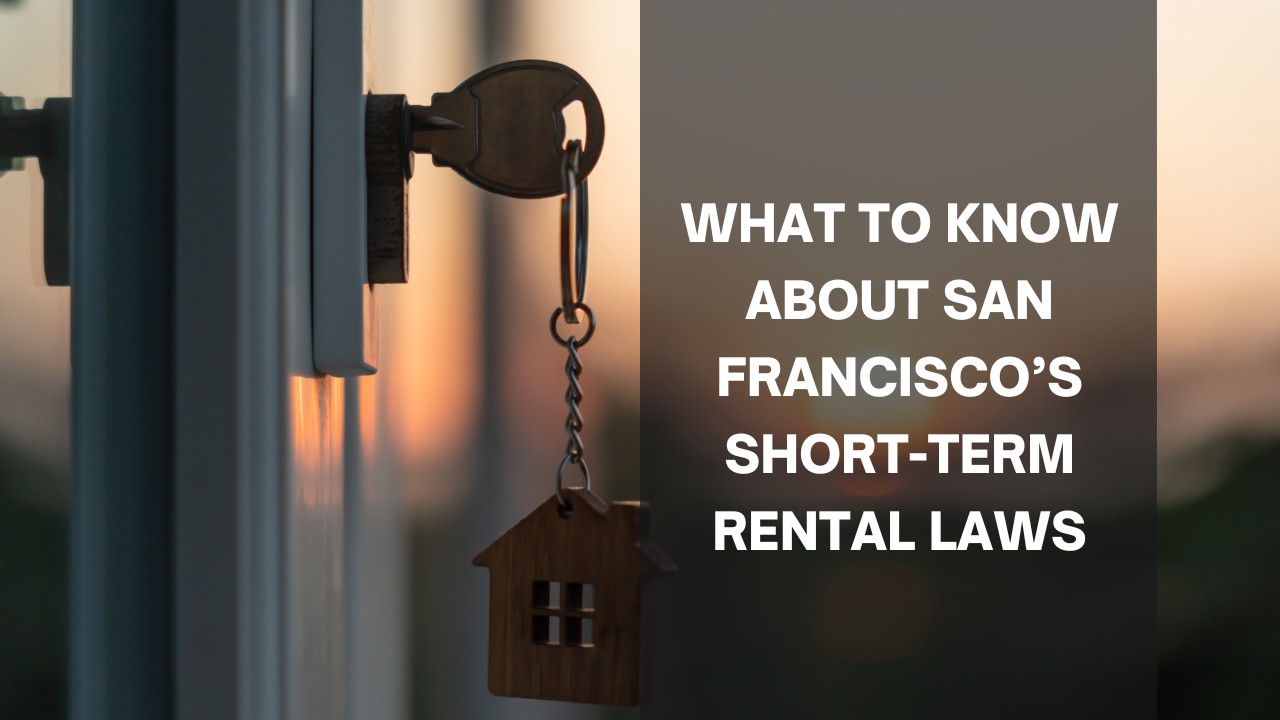San Francisco is a popular destination for tourists and visitors, making short-term rentals a common option for homeowners looking to supplement their income in the city’s competitive housing market. However, despite their popularity, San Francisco has some of the strictest short-term rental regulations in the nation. If you’re considering listing your property on Airbnb or any other short-term rental platform, it’s crucial to understand the city’s laws to avoid fines and potential legal issues.
Understanding San Francisco’s Short-Term Rental Regulations
San Francisco defines short-term rentals as renting out a space for fewer than 30 consecutive nights. These rentals are regulated by the Office of Short-Term Rentals, which ensures housing availability and fair competition with hotels and other lodging options.
Who Is Eligible to Operate a Short-Term Rental?
To legally operate a short-term rental in San Francisco, you must:
- Reside in the property as your primary home for at least 275 days per year.
- Own the property or have written approval from your landlord if renting.
- Only rent out your primary residence—investment properties and secondary homes do not qualify.
Registration and Licensing Requirements
All hosts offering short-term rentals must register with the Office of Short-Term Rentals and obtain a Short-Term Residential Rental Registration Certificate. The process includes:
- Providing proof of residency.
- Obtaining a business registration certificate from the San Francisco Treasurer & Tax Collector’s Office.
- Paying a non-refundable application fee.
- Renewing the registration annually.
Rental Duration Restrictions
San Francisco has specific regulations regarding the number of days you can rent out your home:
- Unhosted rentals (where the owner is not present): Limited to 90 days per year.
- Hosted rentals (where the owner is on-site): No annual limit, but all regulations must be followed.
Compliance Requirements
Short-term rental hosts must adhere to city regulations, including:
- Displaying the registration number on all listings.
- Keeping records of all rental transactions.
- Ensuring guests follow noise and occupancy limits to prevent neighbor complaints.
Taxes and Additional Fees
Hosts are required to collect and remit the Transient Occupancy Tax (TOT), which is 14% of the rental fee. Platforms like Airbnb often handle tax collection automatically, but individual hosts remain responsible for ensuring compliance.
Impact on the Real Estate Market
Short-term rentals have sparked debate in San Francisco, with concerns that they contribute to housing shortages and rising rental prices. Regulations aim to prevent property owners from turning homes into full-time vacation rentals, ensuring that housing remains available and affordable for long-term residents.
Common Mistakes to Avoid
To maintain compliance, avoid these common pitfalls:
- Failing to register your rental: Fines can reach up to $1,000 per day.
- Exceeding rental limits: Renting for more than the allowed 90 days (for unhosted stays) can result in penalties.
- Ignoring tax obligations: Failure to pay the Transient Occupancy Tax can lead to fines.
- Providing false residency information: Authorities actively investigate and penalize misrepresentation.
Conclusion
San Francisco’s short-term rental laws are designed to balance the interests of homeowners, renters, and the broader housing market. By complying with these regulations, hosts can legally operate their rentals while positively contributing to the community. If you’re unsure about any requirements, consulting a real estate professional in San Francisco can help you navigate the process smoothly.

 Facebook
Facebook
 X
X
 Pinterest
Pinterest
 Copy Link
Copy Link
